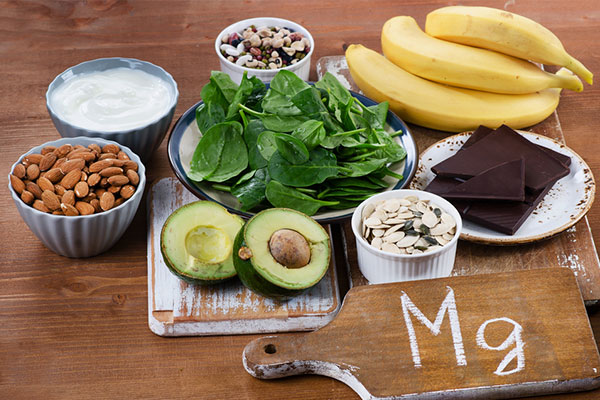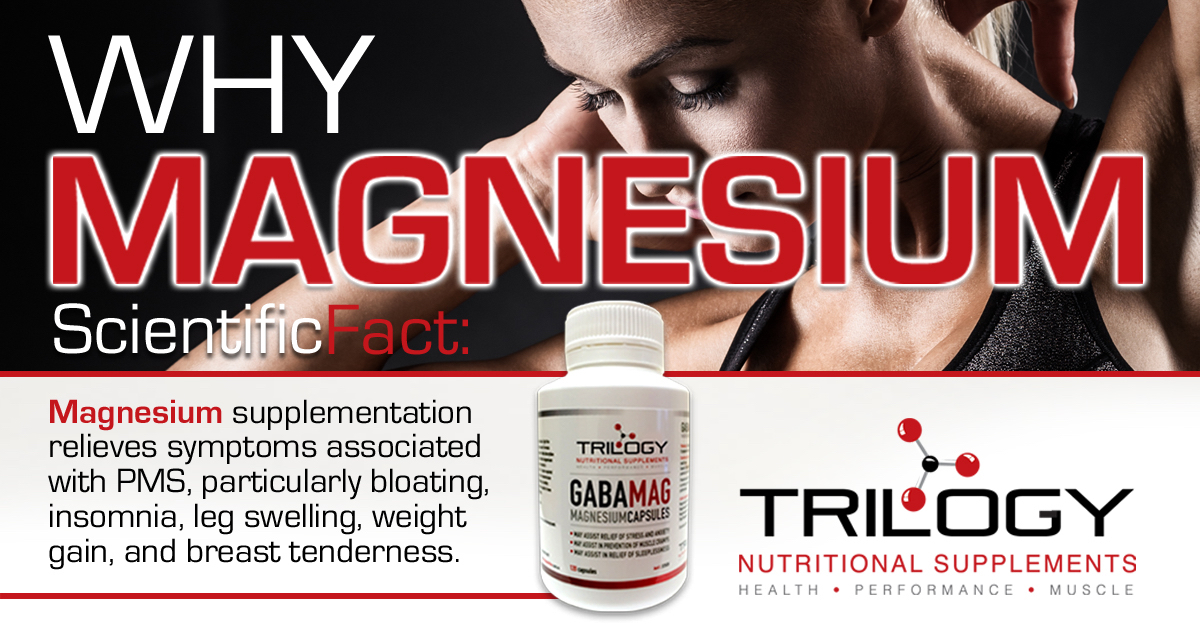It is generally accepted that eating a balanced diet will maintain good health.
This “balancing” involves a diet containing correct portions of carbohydrates, proteins, vitamins, minerals, fats and water.
All minerals are essential for good health and our general wellbeing, and a serious deficiency in any one has its corresponding ramifications.
One of the most essential nutrients you should make a point of incorporating into your diet is magnesium.

Magnesium Deficiency
A study published in the esteemed Journal of Intensive Care Medicine concludes that a deficiency in Magnesium nutrient is likely to reduce one’s life expectancy by almost half compared to those without the deficiency.
In addition a host of poor health symptoms and diseases can be avoided simply by adding magnesium into your diet.
In fact, so powerful is magnesium that no mineral can sit at the same table with it when it comes to relaxation properties, including the ability to promote longer, deeper, more quality sleep.
It is unbelievable given that the above information is well reported, that approximately half of Americans have a deficiency of this critical nutrient.
Unfortunately most Americans are not privy to this fact and as a result people are putting up with increased stress and sleep disorder issues every day, with futile attempts to get to the bottom of the root cause.
Surprisingly, the benefits of magnesium to the overall function of our bodies seems to elude even medical doctors themselves. These benefits include the assistance with; sleep disorders, constipation, irregular heartbeat, high blood pressure cases (including during pregnancy).
Perhaps it’s a classic case of looking beyond the nose for solutions and ending up missing the obvious.
Symptoms of Magnesium Deficiency
Magnesium is found in all tissues of the human body, and is responsible for over a whopping 300 enzyme reactions, albeit mostly in the bones, muscles and brain. You need the mineral to aid in muscle relaxation. Your body relies on it for different chemical pumps to function effectively.
Your cells need it to produce energy, never mind the need to stabilise membranes.
Any signs you experience with irritability, stiffness, cramps or moodiness points to a deficiency in this nutrient.

Please note that experiencing one or more of these symptoms doesn’t exclusively point to a deficiency in the same. In a good deal of cases though, it very well may be.
To give you the straight lowdown on the benefits of magnesium, here is a complete list of symptoms associated with the deficiency of this powerful nutrient.
- Irritability
- Anxiety
- Insomnia
- Unexplainable headaches
- Migraines
- Constipation
- Muscle cramps or twitches
- Chronic fatigue
- Sensitivity to loud noises
- Inflammation in the body
- Menstrual cramps
- PMS
- High blood pressure
- Diabetes
- Trouble swallowing
- Reflux
- Irritable bowel syndrome
- Irritable bladder
- Anal spasms
- Obesity
- Angina
- Palpitations
- Autism
- ADD
- Fibromyalgia
- Asthma
- Kidney stones
- Osteoporosis
Prevalent Issue
Magnesium deficiency has become a rampant issue in our society today. Hospital reports claim that 65% of patients admitted to the intensive care unit have a magnesium deficiency, a figure arrived at by measuring the blood/serum magnesium level.
This figure, however, can be argued to be on the conservative side because measuring blood magnesium level is the least sensitive way to detect fluctuation levels of the mineral in the whole body.
And if that is the case, then there is genuine cause for concern.
So, why is this figure so high?
The answer lies in that age-old reason: diet.
You see, most of the diet many of us consume these days practically contains no magnesium. Not that we knowingly opt to forego foods rich in this or other minerals for that matter, but the convenient preference for things processed and refined is to blame. Think flour-based foods (white flour in particular), meat and most dairy products, all of which boast little to no magnesium content.
If you are like most people, it’s probably a long time since you had a nutritious serving of foods such as beans, greens, sea vegetables or nuts. We don’t mean nuts in the form of peanut butter or those addictive chocolate peanut butter cups. No, we mean actual organic nuts.
The fast-paced modern life we live in doesn’t do us any favours at all when it comes to getting the recommended daily dose of magnesium through the food we eat. The little that we do consume is negated by processed foods containing high levels of salt, as well as drinks such as coffee and soft drinks, loaded with phosphoric acid. (let’s not even get to the alcohol!).
In addition excessive sweating, chronic diarrhoea, some intestinal parasites, prolonged or high stress levels, heavy menstruation, water pills (diuretics), antibiotics and other drugs only serve to exacerbate matters.
A study carried out in the once war-torn Kosovo found that people subjected to the chronic war stress exhibited a drastic reduction of magnesium levels in their urine.
Couple these with the fact that our bodies are not very good at absorbing and retaining magnesium, then you start to understand why it is a common underlying (and inexplicable) cause for many health issues today.
For the human body to absorb magnesium sufficiently, a diet rich in this nutrient is paramount. This also applies to an adequate intake of vitamin B6, vitamin D and selenium, all of which aid in better magnesium absorption.
Addressing a Magnesium Deficiency
Despite the downsides associated with a magnesium deficiency, the good thing is that addressing this insufficiency is pretty simple.
- Cut down on salt, sugar, coffee, soda and alcohol intake.
- Practice active relaxation techniques which help in bringing down stress levels in a way that lounging in front of the TV can never do.
- Consult with your doctor on whether your medication is contributing to a loss of magnesium, as many diuretics and high blood pressure drugs may be of concern.
- Make foods rich in magnesium a constant feature of your diet – Include leafy greens, nuts and seeds, figs, dates, fish, fruit such as banana, avocado and papaya, brown rice, rye, barley, millet, tofu, parsley, beans, and garlic.
- Take magnesium supplements such as the highly recommended forms in powerful capsules combining a magnesium formula packed with essential amino acids like magnesium glycerophosphate, magnesium glycinate dihydrate and magnesium lysine.

Last Word
The minimum amount needed for magnesium (RDA) is about 300mg per day, with most people able to get by with less than 200mg; others needing a lot more depending on their condition. The larger majority are best suited for levels between 400mg and 1,000mg per day.
We get it, getting access to fresh fruits and vegetables each day may not be feasible for most of us, and more so when it comes to organic, non-GMO produce. This is where supplements carry the day. However, it is essential to note that all supplements are not equal.
In addition to the aforementioned forms, you might also want to settle for supplements that contain magnesium citrate, glycinate taurate, or aspartate as they are highly absorbable. This is something that cannot be said of their counterparts containing magnesium carbonate, sulfate, gluconate, and oxide which tend to be the cheapest and most common forms. Avoid this lot.
Anyone can take supplements, but those suffering from kidney or severe heart disease should seek medical advice first.
You stand to gain numerous benefits by incorporating magnesium into your daily diet. This super nutrient will give you a feeling of wellbeing and provide your overall health with a wonderful treat.
Article Written by Dr Eleenor V. Serafico-Gumpal
Medical Officer – City health Office
A diplomate member of Pediatric Society, currently a pediatric consultant of various hospitals.
Medical Officer & Medical Coordinator of National Immunization Program in Las Pinas City, Philippines under the Department of Health
A graduate of Doctor of Medicine,A graduate of Bachelor of Science in Nursing & licensed nurse.
Copyright Trilogy Nutrition.
All Rights Reserved.
If you wish to republish this article or share it on your own website, you must add the words: “Originally posted on www.trilogynutrition.com.au” and be sure to credit Trilogy Nutrition.


